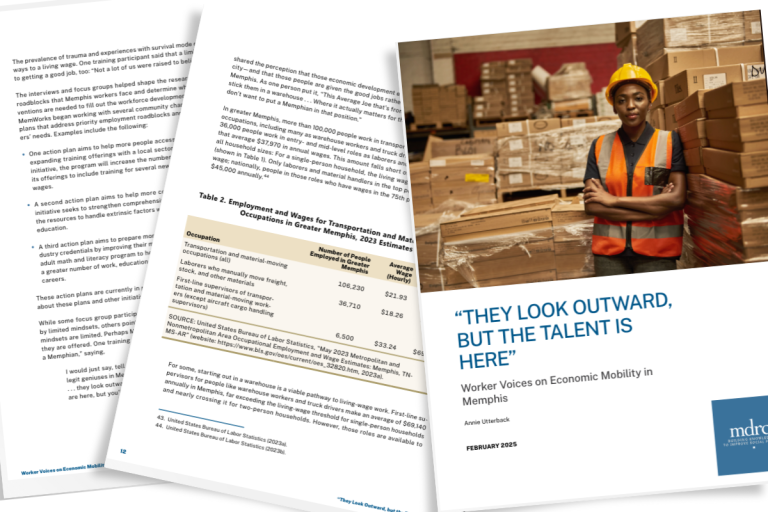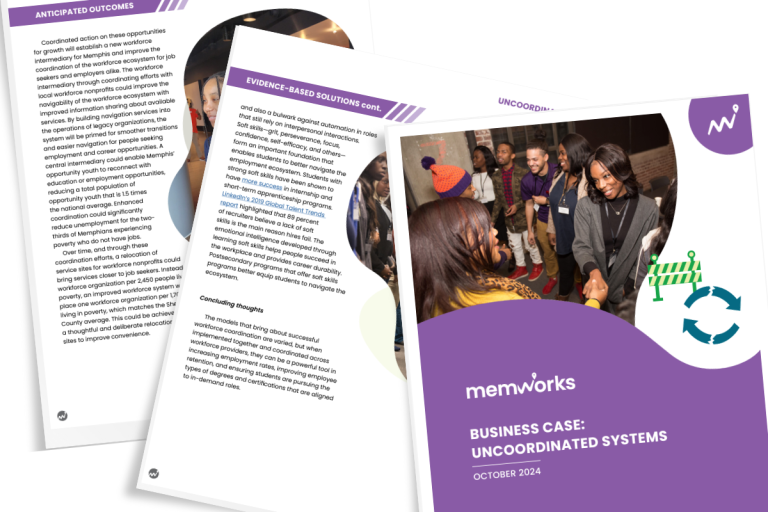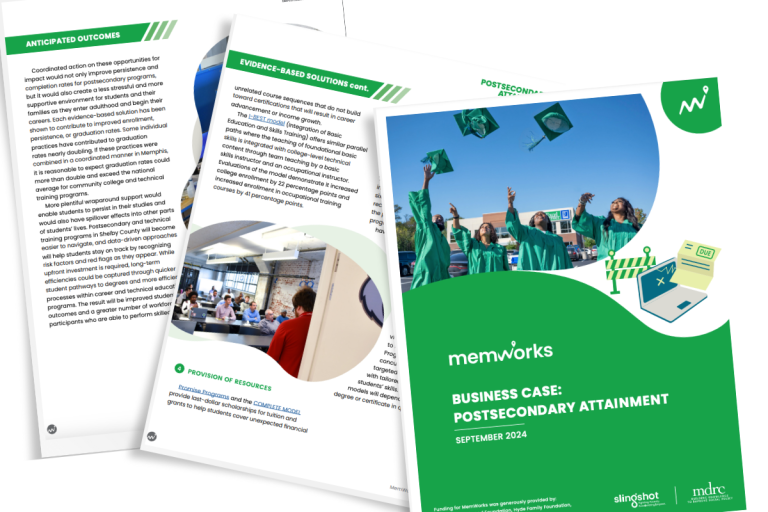Through our research, we identified several workforce organizations across the country, and the world, that are employing evidence-based practices that address the employment roadblocks MemWorks identified. Over the next several weeks, we will profile some of these organizations to share their impact and what we can learn from them that could help inform our efforts in Memphis.
REACH
REACH Literacy improves adult literacy by providing workplace-based literacy education programs tailored to employee needs. They focus on improving basic communication skills and computer literacy, particularly for those experiencing poverty. Low literacy and numeracy impede success in technical training programs and stand in the way of career advancement.
REACH tackles literacy challenges through its Workplace Academy by sending tutors directly to workplaces to provide literacy training during work hours. It offers a curriculum tailored to specific employers to meet the needs of their employees. The organization provides learning materials and conducts rigorous pre- and post-assessments to track student progress. In partnership with employers, REACH creates collaborative and supportive learning environments.
REACH currently partners with major healthcare providers, construction companies, and manufacturing companies. Program impact assessments have reported improvements in employee productivity, retention, and satisfaction. REACH has enhanced employees’ professional skills and even helped employees make progress on their personal goals, such as better communication with their children’s schools and pursuing career advancement opportunities.
Providing academic remediation at the place of employment not only reduces the burden for employees while delivering the support they need to advance in their careers, but also benefits employers by enhancing the capabilities of their workforces.
Lessons for Memphis
A significant number of Memphis job seekers face literacy challenges with one in seven adults reading below a 6th-grade level. An estimated 100,000 Memphians experiencing poverty need academic remediation to pursue the career & technical education that can unlock living-wage jobs. Implementing a program similar to REACH Literacy in Memphis could help address these literacy gaps by providing accessible, workplace-based literacy education, thereby enhancing the skills and opportunities for workers. Such a program could also support local employers by improving employee productivity, retention, and satisfaction, creating a mutually beneficial scenario for both employees and businesses in Memphis.
The collaboration of local employers, technical training providers, and local literacy organizations (e.g., Literacy Mid-South, HopeWorks) would be required to design and implement an approach that is applicable to the Memphis context. A combination of funding from employers and the philanthropic community would be necessary to support the launch of an organization like REACH.





